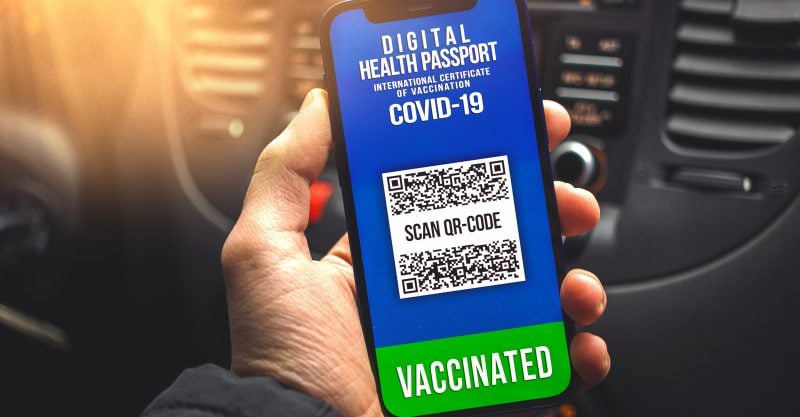By
States are split on vaccine passport mandates, with some vowing to resist and others embracing the idea as necessary for a return to normalcy, but feds insist their role will be limited to ensuring equity and privacy.
The U.S. government won’t mandate vaccine passports, multiple news outlets reported today, but that doesn’t mean states, schools and private entities can’t or won’t.
Andy Slavitt, senior adviser for the White House COVID-19 Task Force, said today the U.S. does not plan to create vaccine passports. Instead, Slavitt said states can develop their own system and the federal government will help develop standards for equity and privacy that programs need to uphold.
Dr. Anthony Fauci, chief medical advisor to President Biden, echoed Slavitt’s comments during a podcast today with the Politico Dispatch. Fauci said he doubts the federal government would be the “main mover of a vaccine passport concept” but he could see “individual entities” — such as businesses or schools — requiring vaccine passports to enter their buildings, Axios reported.
“I’m not saying that they should or that they would, but I’m saying you could foresee how an independent entity might say, ‘well, we can’t be dealing with you unless we know you’re vaccinated,’ but it’s not going to be mandated from the federal government,” Fauci said.
Since the Biden administration announced last week it was partnering with private companies to develop a vaccine passport system that would require Amerians to show proof of vaccination status as a requisite to “returning to normalcy,” states and congressional leaders have become fiercely divided over the issue with many claiming vaccine passports are nothing more than a power grab.
As it stands, Florida, South Carolina, Missouri, Wisconsin, Wyoming, South Dakota, Arkansas, Ohio, Arizona, Pennsylvania, Iowa, Louisiana, Montana, Minnesota, Nebraska, California and Maryland have expressed opposition, initiated legislation or signed executive orders banning or severely restricting the use of vaccine passports in an effort to protect individual freedoms, civil liberties and privacy, and to prohibit discrimination based on vaccine status.
Other states like Illinois, Hawaii, Nevada and New York have embraced the idea of vaccine passports with New York and Las Vegas launching digital vaccine passport systems last week.
Connecticut supports spectators at large events — such as sports games — providing proof of vaccination before entering a venue, but not mandating the COVID vaccine for the general public, Hartford Courant reported. Lawmakers in New Jersey said they’re not ready to commit to vaccine passports, citing privacy concerns and how the passport could affect sporting events and jobs.
Florida Gov. Ron DeSantis was one of the first governors to speak out against vaccine passports. On April 2, DeSantis issued an executive order banning state and local government agencies and businesses from requiring vaccine passports or documentation proving that someone has been vaccinated against COVID.
“Today I issued an executive order prohibiting the use of so-called COVID-19 vaccine passports,” Desantis said on Twitter. “The legislature is working on making permanent these protections for Floridians and I look forward to signing them into law soon.”


When SNL makes fun of the vaccine…
LikeLike
Pingback: Feds Won’t Mandate Vaccine Passports, But Will Help States, Businesses, Schools Develop Standards – © blogfactory
Pingback: Feds Won’t Mandate Vaccine Passports, But Will Help States, Businesses, Schools Develop Standards — The Most Revolutionary Act | FREEDOM MINDS FOR THE AMERICAN REPUBLICS
That’s great news, Deb. Unfortunately SNL doesn’t allow their videos to be uploaded in New Zealand, so I can’t watch it.
LikeLike